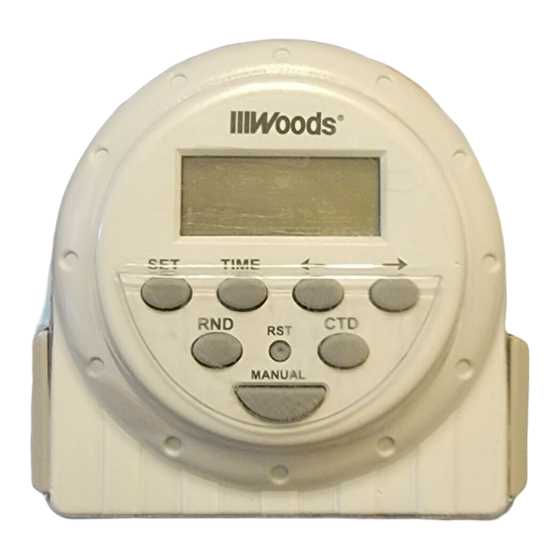
In today’s fast-paced world, managing and automating our environment has become more crucial than ever. Having a reliable system to regulate external electrical devices can significantly enhance both convenience and energy efficiency. Whether you’re setting up lighting for evening events or automating garden irrigation, understanding how to properly use your scheduling tool is key to maximizing its benefits.
This guide will walk you through the fundamental aspects of operating your scheduling equipment. From basic setup to advanced features, we aim to provide clear and concise instructions to ensure that you get the most out of your device. Our goal is to help you seamlessly integrate this technology into your daily routine, optimizing both functionality and performance.
By the end of this guide, you will have a thorough understanding of how to adjust settings, program schedules, and troubleshoot common issues. Embrace the convenience of automation and take control of your external power management with confidence and ease.
Understanding Your Woods Outdoor Timer
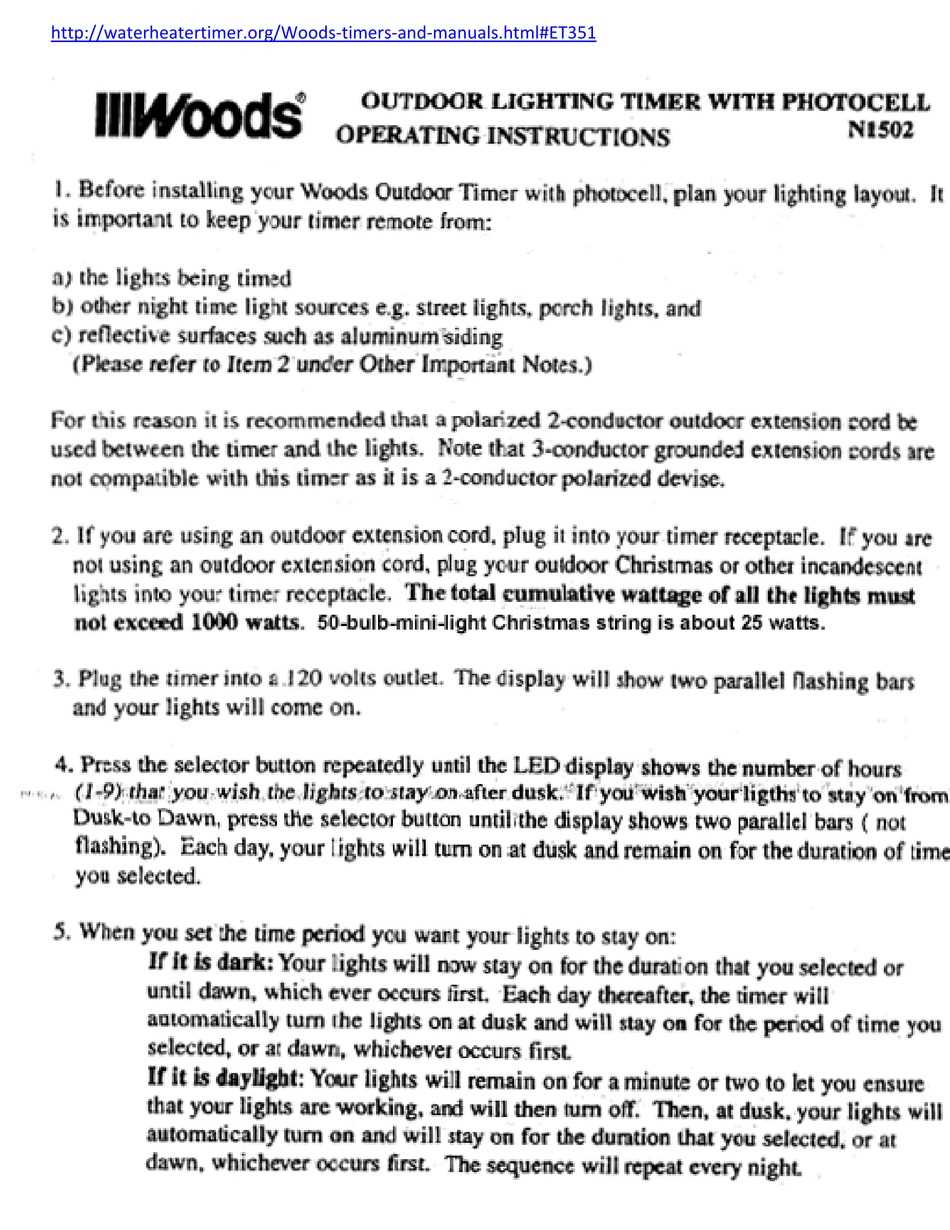
Getting acquainted with your programmable device is crucial for maximizing its benefits. This guide will help you navigate the essential features and functions of this versatile apparatus.
Here are the key aspects to consider:
- Setup: Learn how to properly configure the device to ensure accurate operation.
- Functionality: Explore the various settings and modes available to suit your needs.
- Maintenance: Understand how to keep the device in optimal condition for long-term use.
By mastering these elements, you will be able to efficiently manage and utilize your device for various applications.
Features of the Woods Timer Device
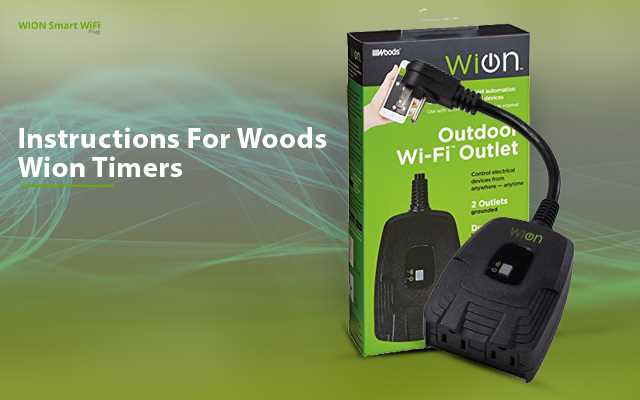
Understanding the core attributes of this versatile device reveals its potential for enhancing convenience in various settings. Its design integrates practical functionalities, tailored for ease of use and adaptability across different applications.
Core Functionalities
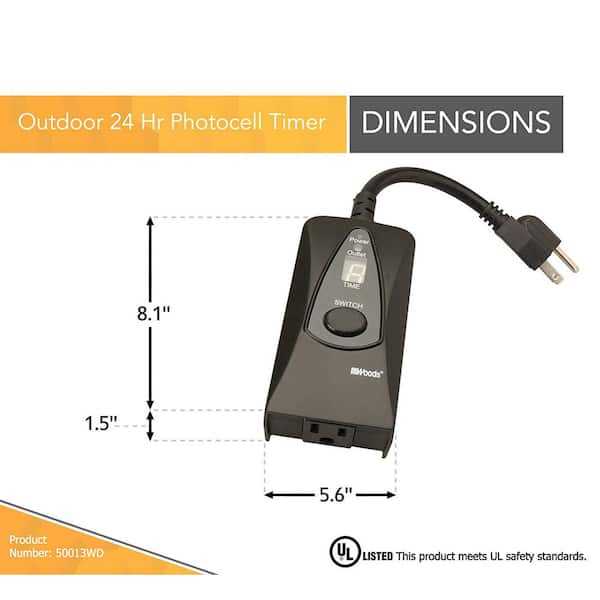
The device provides a range of capabilities, including precise control over power delivery. It is engineered to automate operations, making it a valuable asset for managing electrical equipment efficiently.
Design and Adaptability
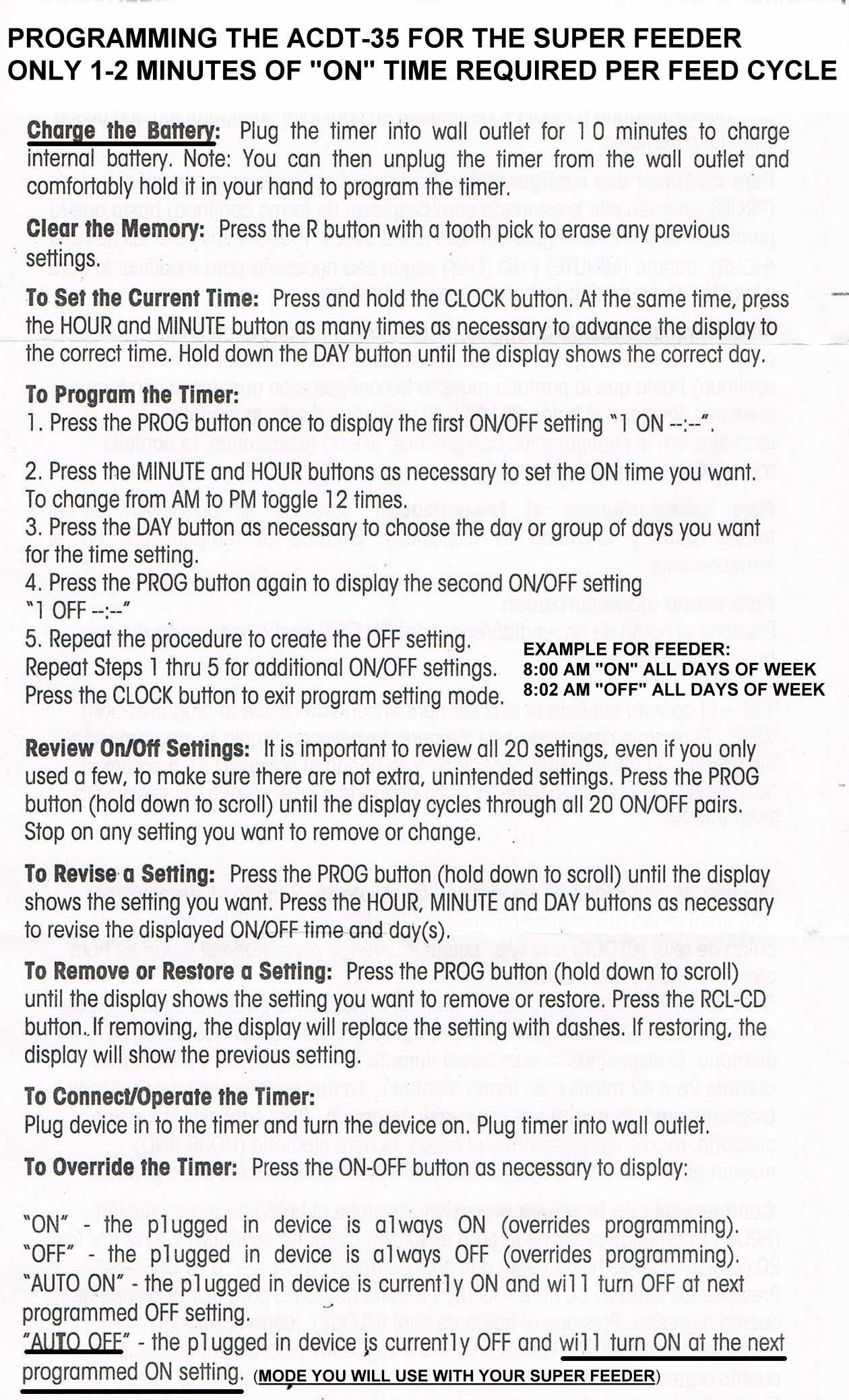
Constructed with user-friendliness in mind, this device features a robust and intuitive interface. Its adaptable design ensures compatibility with a variety of setups, catering to diverse user needs and environmental conditions.
How to Set Up Your Timer
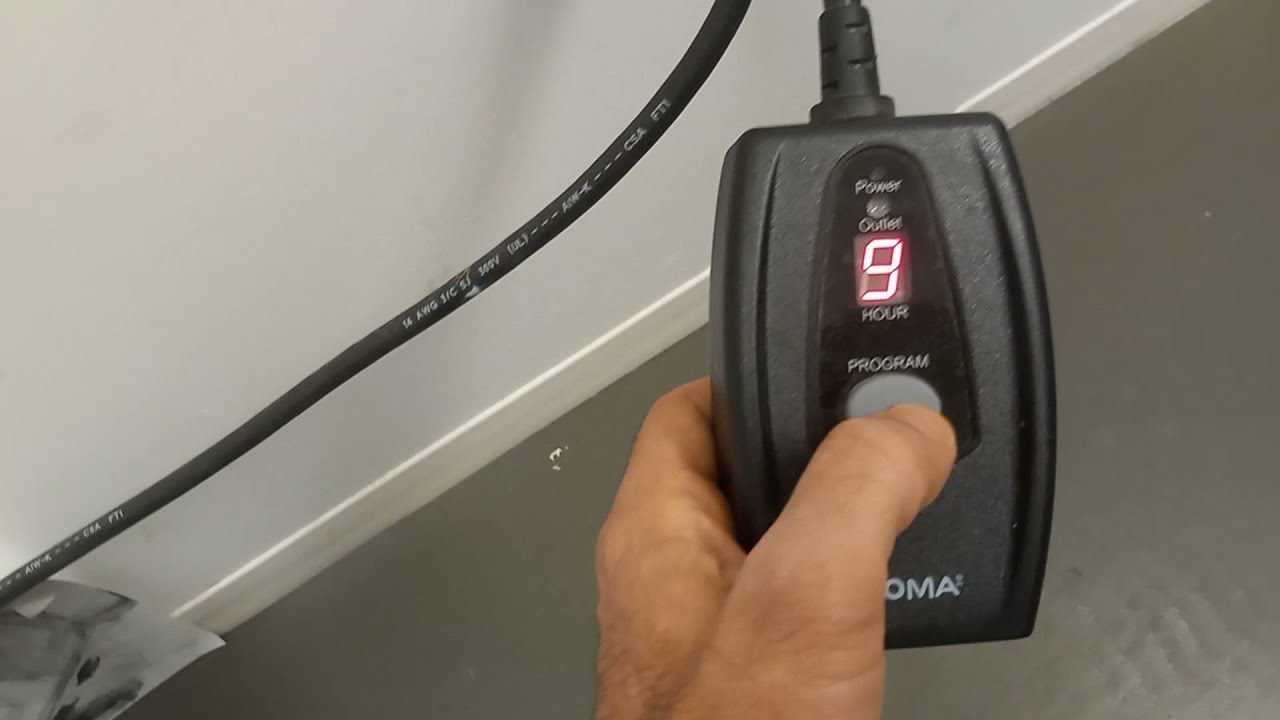
Getting your device ready involves a few essential steps to ensure optimal functionality. Follow these instructions to configure your device effectively.
- Start by connecting the device to a power source.
- Access the control panel and select the desired settings.
- Set the current time according to your preference.
Ensure that you test the settings to confirm everything operates as intended. Adjust any parameters if necessary to fit your specific needs.
Programming Multiple On/Off Cycles
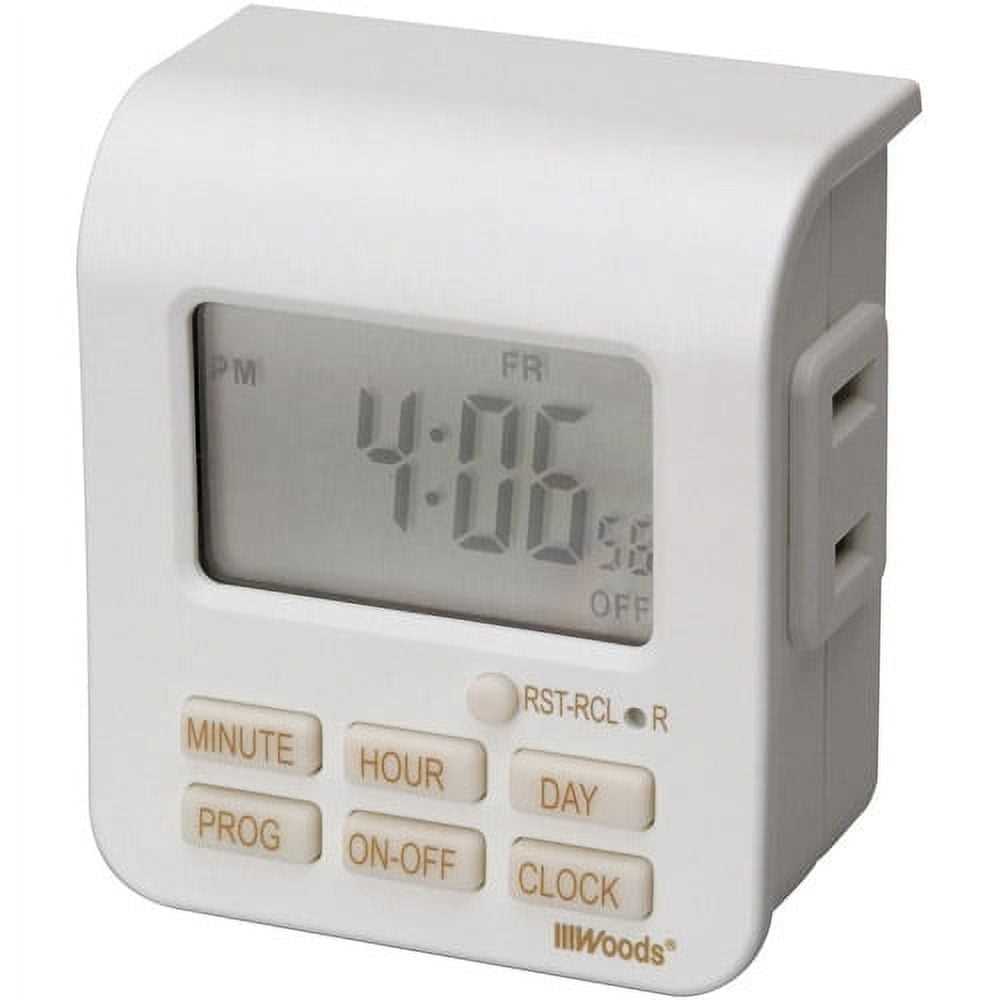
Setting up multiple activation and deactivation intervals allows for automated control of electrical devices over an extended period. This feature is useful for creating consistent schedules, enhancing energy efficiency, and ensuring that devices operate as intended throughout the day.
Step-by-Step Setup
To program several on/off cycles, follow these steps to configure the desired schedule:
| Step | Description |
|---|---|
| 1 | Access the scheduling interface on the control unit. |
| 2 | Select the number of cycles you wish to program. |
| 3 | Set the start and end times for each cycle. |
| 4 | Adjust the duration of the on and off phases for each interval. |
| 5 | Save your settings and verify the programmed schedule. |
Tips for Effective Scheduling
When programming multiple cycles, consider the following tips to optimize performance:
- Ensure that the intervals align with your device’s operational requirements.
- Check that all time settings are accurate to avoid unintended operations.
- Regularly review and adjust the schedule as needed to maintain efficiency.
Common Troubleshooting Tips
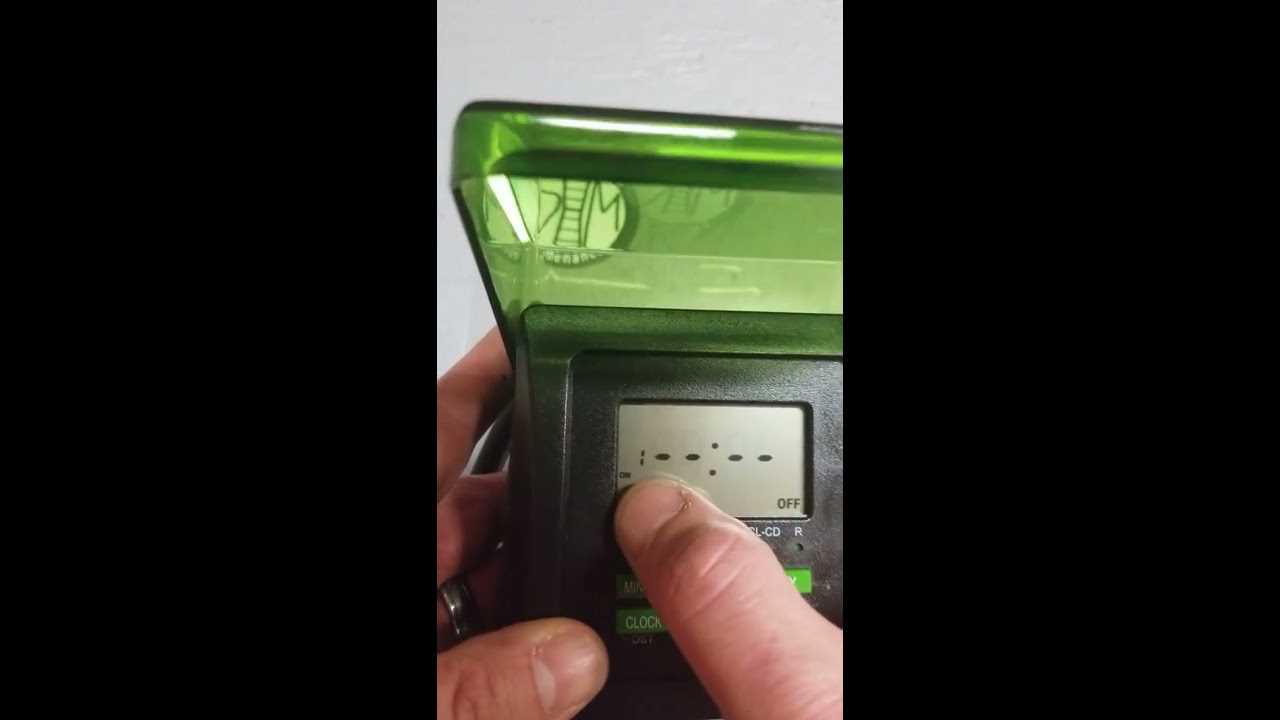
When dealing with issues related to automated controls, there are several general steps you can take to identify and resolve common problems. These tips can help you address frequent malfunctions and ensure your system operates smoothly.
Check Power Supply
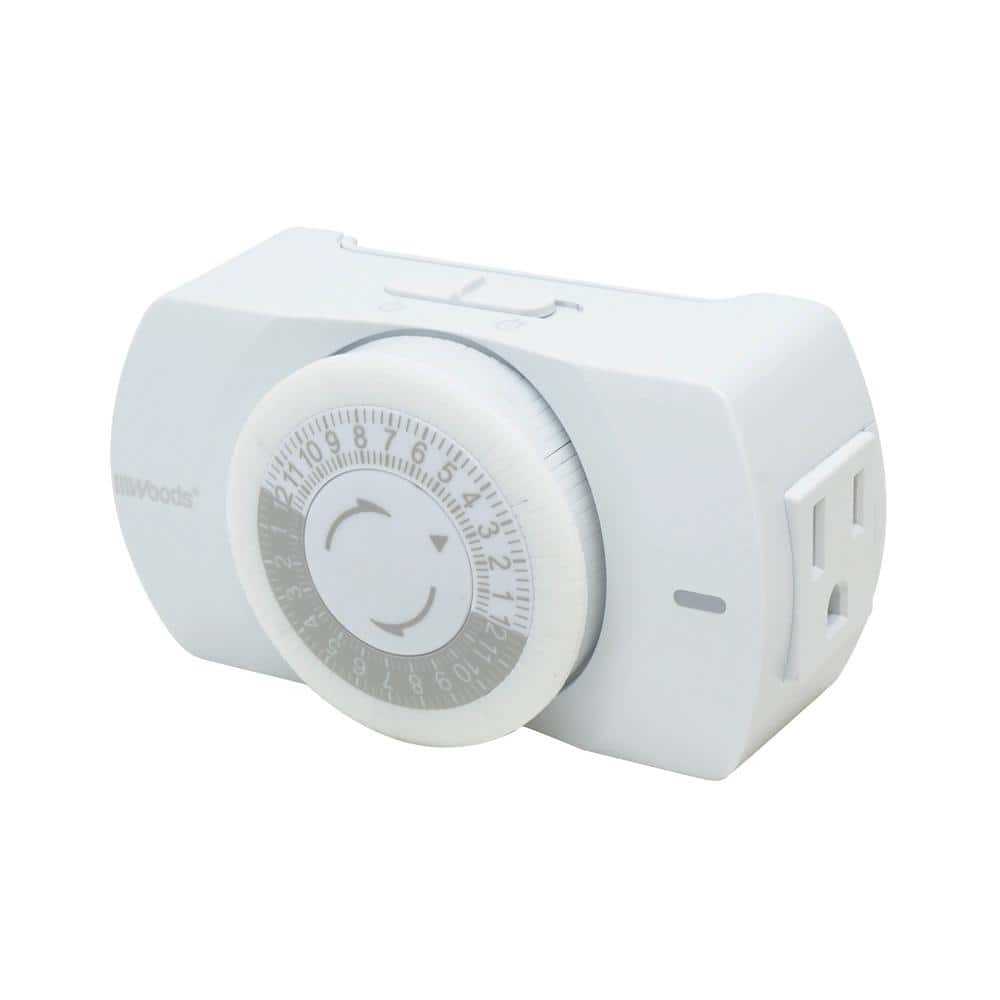
- Ensure the device is properly connected to a working power source.
- Verify that all cables and connectors are secure and undamaged.
- Test the outlet with another device to confirm it’s providing power.
Inspect Settings and Programming
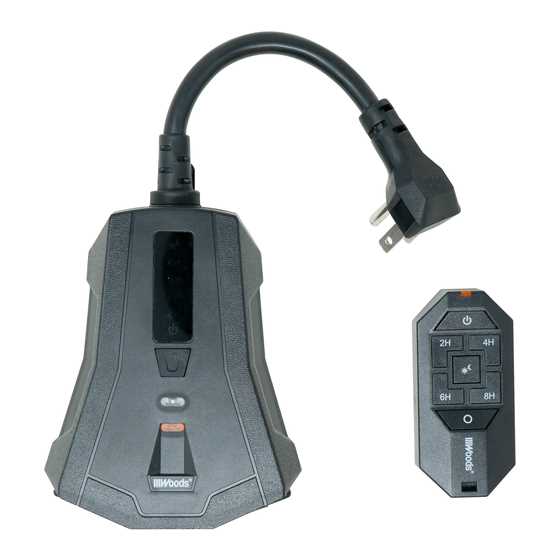
- Review the programming settings to ensure they are correctly set according to your needs.
- Reset the device to factory settings if necessary and reprogram.
- Consult the setup guide for specific configuration instructions.
Safety Precautions and Maintenance
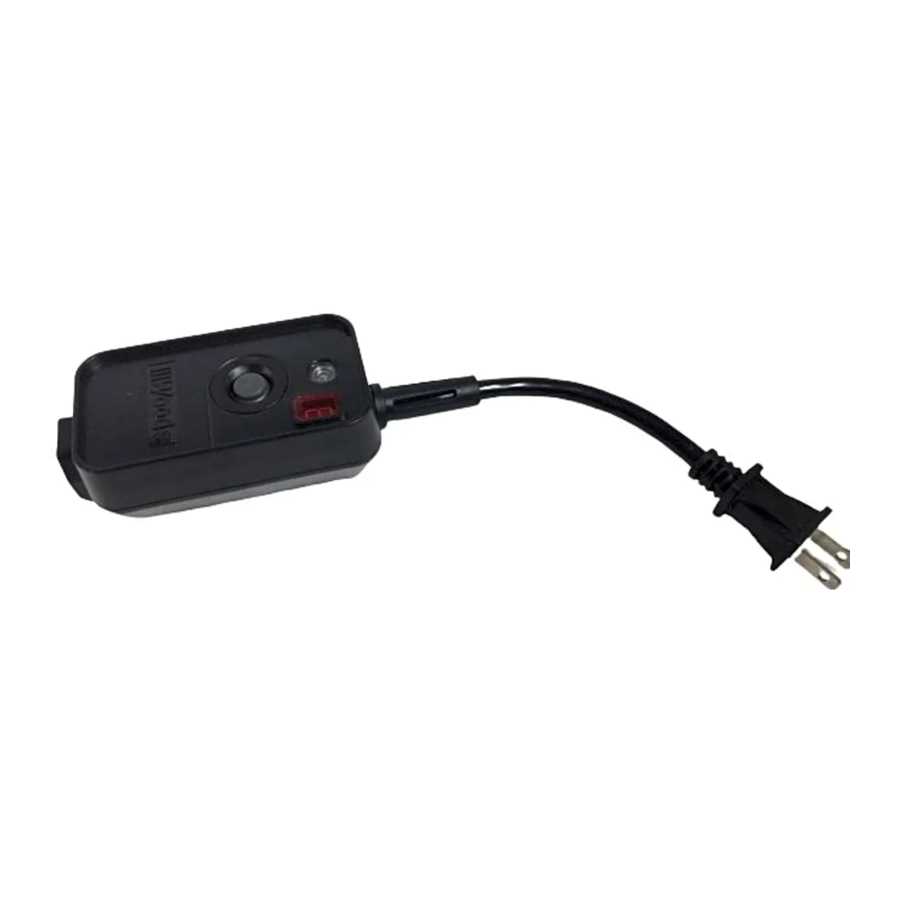
Ensuring the longevity and safety of your equipment involves adhering to essential guidelines and performing regular upkeep. These practices are crucial for maintaining optimal performance and preventing potential hazards.
- Keep the device away from water and moisture to prevent electrical hazards.
- Inspect the unit regularly for any signs of wear or damage.
- Avoid using the equipment with damaged cords or plugs.
- Ensure proper ventilation around the device to avoid overheating.
Regular maintenance tasks include cleaning the unit with a dry cloth and checking all connections for security. Always follow the manufacturer’s recommendations for specific care instructions.
Replacing the Timer Battery
When the device’s performance begins to wane, it may be time to refresh its power source. Changing the battery ensures that the equipment continues to function effectively and reliably. This process is straightforward and involves a few simple steps to maintain optimal operation.
To begin with, locate the battery compartment, which is usually found on the back or bottom of the device. Open the compartment carefully, making sure not to damage any clips or fasteners.
Next, remove the old battery, noting its orientation to ensure the new one is inserted correctly. Place the new battery into the compartment, aligning it according to the indicated polarity. Secure the compartment back in place.
Finally, test the device to confirm that it is functioning properly with the new battery. Regular replacement of the power source helps in maintaining the longevity and efficiency of the equipment.